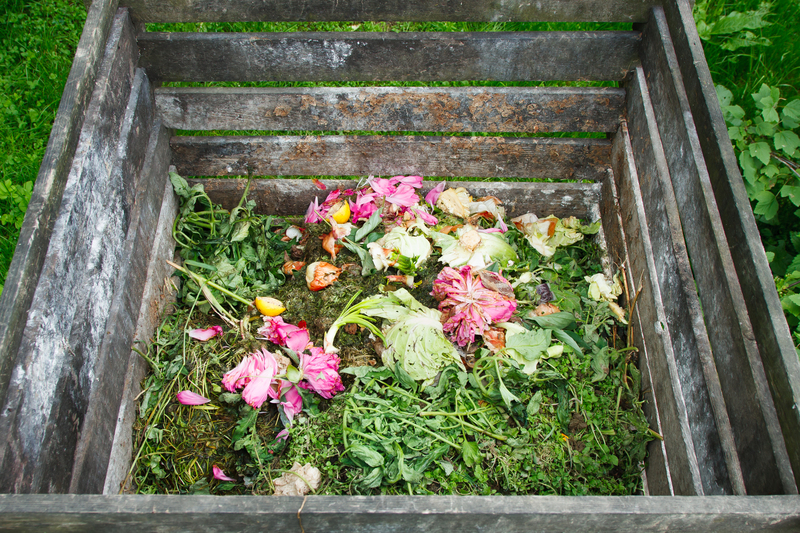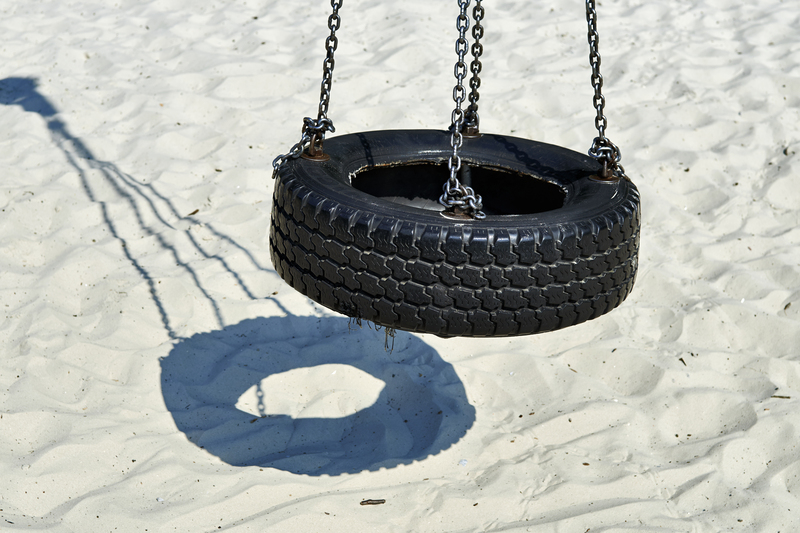Utilizing Excess Household Junk
Posted on 11/03/2025
In today's modern world, it's easy to accumulate an overwhelming amount of household items. With a constant influx of new products, gadgets, and various household goods, managing excess household junk can pose a real challenge. Fortunately, there are numerous efficient, sustainable, and even profitable ways to handle and utilize excess household items. This article delves into various methods that can help you transform your clutter into valuable resources.
Understanding the Impact of Excess Household Junk
Excess household junk is not just an aesthetic problem; it represents wasted resources, potential health hazards, and environmental concerns. Items that are no longer needed or used tend to accumulate in our living spaces, creating clutter and reducing the functionality of our homes. Moreover, improperly disposed of junk can contribute to environmental pollution and landfill overflow.
Improper storage of items increases the risk of accidents and can lead to physical injuries. Additionally, excessive clutter can harbor dust, mold, and pests, which pose health risks, especially for those with allergies or respiratory conditions.

Strategies for Reducing Household Junk
To effectively manage household junk, it is essential to adopt strategies aimed at reducing clutter and optimizing the use of available resources. Here are some practical approaches:
1. Decluttering and Organization
The first step in managing household junk is to declutter and organize. This involves systematically sorting through items, deciding what to keep, what to dispose of, and what can be repurposed. Assess each item based on its functionality, sentimental value, and frequency of use. Consider implementing the following techniques:
- Use the KonMari Method to determine which items "spark joy."
- Adopt a one-in, one-out rule to prevent future accumulation of unnecessary items.
- Utilize clear storage bins and labels for easy identification and access.
2. Donate and Give Away
Another effective way to minimize household junk is by donating items in good condition to charitable organizations or giving them away to friends and family. Many non-profit organizations accept a wide range of items, such as clothes, furniture, electronics, and kitchenware. This not only helps you declutter but also supports those in need.
Creative Ways to Repurpose Household Junk
Repurposing involves finding new uses for old items, thus extending their lifespan and reducing waste. Engaging in creative repurposing can be both fulfilling and eco-friendly. Here are innovative ways to transform common household junk:
1. Upcycling Projects
Upcycling is the process of transforming materials or products that are no longer needed into items of higher value or utility. It often involves DIY projects that can range from simple to highly creative. Here are some upcycling ideas:
- Convert old wooden pallets into stylish furniture such as coffee tables or garden benches.
- Transform glass jars into chic storage containers, vases, or candle holders.
- Repurpose worn-out clothes into patchwork quilts, pillows, or reusable shopping bags.
2. Artistic Creations
Household junk can serve as a great resource for artists and crafters. Items like bottle caps, metal scraps, and broken jewelry can be used to create beautiful art pieces and unique home decor. Consider the following:
- Create mosaic designs with broken tiles or glass pieces.
- Assemble a whimsical wind chime using old silverware and beads.
- Design sculptures using recycled materials such as metal rods, pipes, and old tools.
Economic Benefits of Utilizing Household Junk
Besides being an environmentally responsible practice, reusing and repurposing household junk can yield economic benefits. Here are some ways to achieve financial gains:
1. Selling Unwanted Items
Many items that you consider junk might be valuable to others. Selling unwanted household goods is an excellent way to declutter while earning extra income. You can use online marketplaces such as eBay, Craigslist, and Facebook Marketplace to reach potential buyers.
Additionally, hosting a garage sale or participating in community swap meets can help you sell items locally. Remember to research the value of your items beforehand and price them competitively.
2. Crafting and Selling Upcycled Products
If you have a knack for crafting and upcycling, you can turn your creative projects into a small business. Platforms like Etsy allow artisans to sell handmade and upcycled products to a global audience. Focus on creating unique, high-quality items that appeal to eco-conscious consumers.
Sustainable Disposal of Household Junk
When items can't be repurposed or sold, disposing of them in an environmentally friendly manner is crucial. Here are some sustainable disposal methods:
1. Recycling
Recycling involves processing used materials into new products, thereby conserving natural resources and reducing landfill waste. Many communities offer curbside recycling programs for paper, cardboard, glass, plastics, and metals. For items that require special handling, such as electronics and batteries, look for designated recycling centers.
2. Composting
Organic household waste, such as food scraps and yard trimmings, can be composted to create nutrient-rich soil. Composting diverts waste from landfills and provides a valuable resource for gardening. Invest in a compost bin and educate yourself on best composting practices to ensure efficient decomposition.

Educational and Community Initiatives
Raising awareness and promoting responsible waste management within your community can have a significant impact. Consider the following initiatives:
1. Hosting Educational Workshops
Organize workshops to teach others about decluttering, DIY upcycling, and sustainable waste disposal. Partner with local environmental groups, schools, or community centers to reach a broader audience. Sharing knowledge and skills empowers individuals to take proactive steps towards reducing household junk.
2. Participating in Community Clean-Up Events
Get involved in community clean-up initiatives to address neighborhood clutter and promote environmental stewardship. These events can foster a sense of community pride and collective responsibility for maintaining clean and organized living spaces.
Conclusion
Managing and utilizing excess household junk is a multifaceted approach that encompasses decluttering, repurposing, selling, recycling, and community engagement. By adopting sustainable practices and being mindful of resource management, we can reduce our environmental footprint, improve our living spaces, and even derive economic benefits. Whether through creative upcycling projects or community outreach, every effort counts towards creating a cleaner, greener, and more organized world.
Make a conscious choice today to start transforming your household junk into valuable resources. The journey towards sustainable living is filled with opportunities for creativity, learning, and positive impact.
Latest Posts
Essential Tips for Managing Organic Waste






